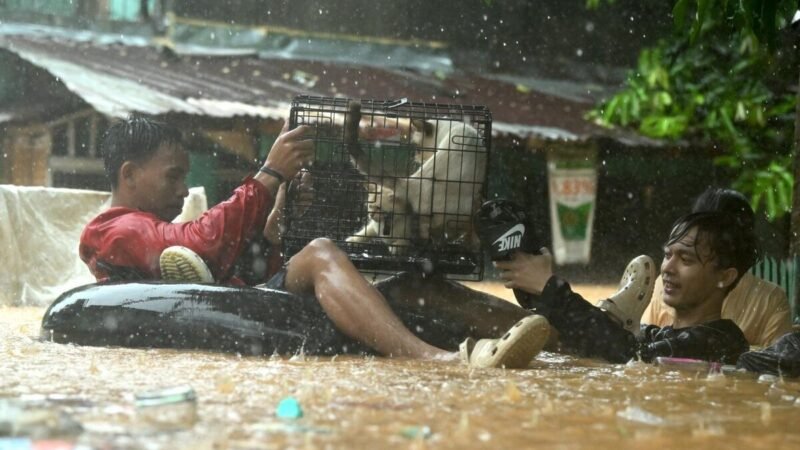Greenpeace submits formal appeal to Dep of Agriculture to revoke ‘golden rice’ approval
Greenpeace today formally submitted their appeal for the Department of Agriculture (DA) to revoke the approval of genetically modified “golden rice.” The submission came together with several other appeals from farmer, consumer and other public interest groups to ask the DA to reverse the decision.
The DA, through the Bureau of Plant Industry (BPI), approved “golden rice” for release as food, feed and for processing last 10 December 2019. Greenpeace believes the approval is unwarranted due to 1) the incomplete data submitted by the project proponents, and 2) the lack of transparency and adequate public participation throughout the approval process.
“The BPI’s approval of so-called ‘golden rice’ is extremely irresponsible and completely misguided,” said Wilhelmina Pelegrina, senior campaigner at Greenpeace Southeast Asia. “Greenpeace condemns the BPI’s systematic disregard of the precautionary principle, and of robust data that clearly show that the safety assessments submitted by GR proponents are flawed. We also believe the application was not transparent and feel that the approval was railroaded, with no attempt to include any meaningful public consultation.”
On 24 October 2019, Greenpeace submitted to the DA, the BPI, and the DOH, comments on the “Consolidated Report of PhilRice and IRRI’s GR2E rice application for direct use as food and feed, or for processing.” The scientific critique noted that the supporting information and studies submitted by PhilRice and the International Rice Research Institute (IRRI) show deficiencies in the data provided for the risk assessment. These deficiencies cast major doubt on the assessment and the safety of “golden rice” or GR2E for food and feed.
Additionally, Greenpeace notes that the concerns of farmers, indigenous peoples, religious groups, youth, mothers, consumers and civil society groups were not considered during the process. The approval process failed to take into account the potential socio-economic impacts to farmers and indigenous peoples, as well as to local culture, ethics, and risks to social cohesion. Moreover, the assessment did not cover what the impact of “golden rice” will be on further loss of markets for farmers due to crop contamination from genetically modified species.
Greenpeace believes that the approval process for genetically modified organisms in the Philippines should abide by the precautionary principle and provide standards for safety and security of our citizens and the food we grow and consume. This process must not discount potential threats and should not be biased towards approval at the expense of safety considerations.
“There are already proven solutions to Vitamin A deficiency which are cheaper, more practical, do not require the risky genetic modification of food crops, and which are not beholden to giant, foreign, agri-chemical companies,” said Pelegrina. “’Golden rice’” is unnecessary, more so at a time of climate emergency when resilient food and farm systems are imperative. We believe the DA should be working with other government agencies to promote healthy eating and healthy diets rather than promote unproven quick fixes like ‘golden rice’ that have not been proven to contain any nutritional value. Empowering people to have access to and grow diverse grains, fruits and vegetables for diverse diets is the solution to food and nutrition security.”



